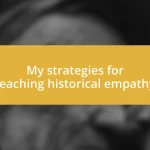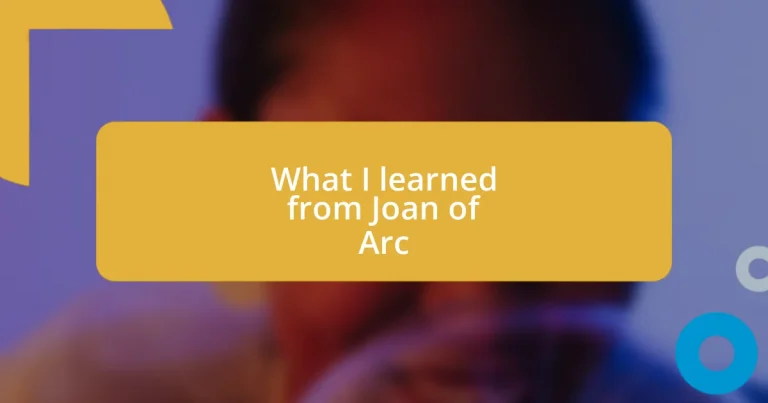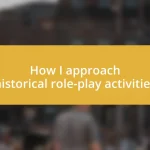Key takeaways:
- Joan of Arc exemplifies true bravery by standing firm in her beliefs against societal pressures, encouraging others to follow their convictions.
- Effective leadership during adversity involves resilience, creating a shared purpose, and balancing vulnerability with confidence to inspire teams.
- Visionary thinking empowers individuals to pursue ambitious goals and engage others in collective efforts, embracing both confidence and vulnerability along the journey.
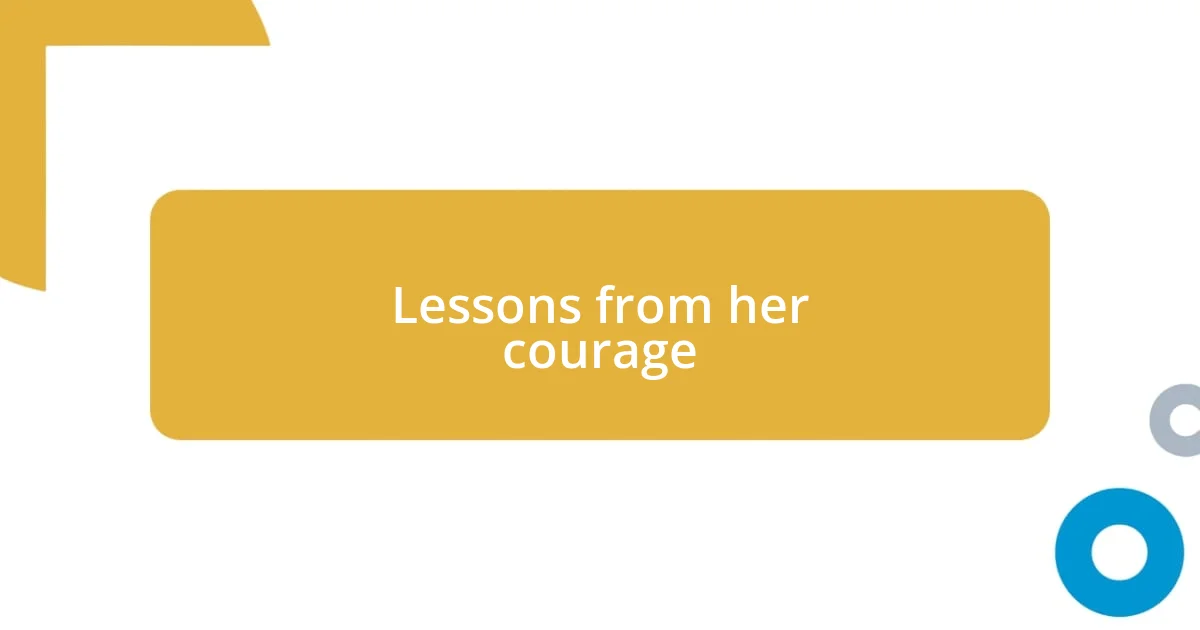
Lessons from her courage
Joan of Arc’s courage teaches us that true bravery often means standing up for our beliefs, even when facing overwhelming odds. I remember a time in my own life when I had to speak up in a meeting where everyone else was silent, fearing backlash. It was terrifying, yet it felt essential to voice my thoughts, much like how Joan passionately defended her faith and mission.
Her resolve also highlights the importance of following one’s convictions regardless of societal expectations. Have you ever felt that tug to conform, only to realize that your inner voice was more powerful? Joan’s willingness to embrace her unique path shows us that forging our own way can lead to remarkable outcomes, even in the face of resistance.
Furthermore, Joan’s actions prompt us to consider the nature of sacrifice in the quest for justice. Reflecting on moments in my life, it often seemed that the hardest choices carried the most impactful lessons. Her ultimate sacrifice reminds us that while courage can be daunting, it can also ignite profound change, urging us to weigh what we are willing to risk for our principles.
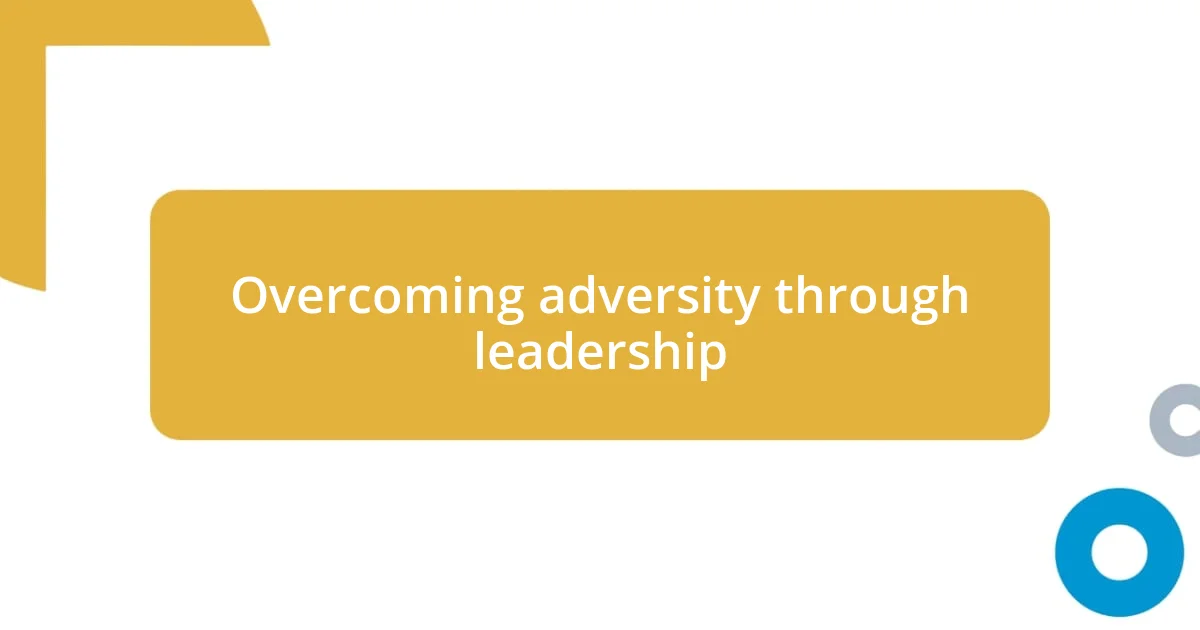
Overcoming adversity through leadership
Overcoming adversity through leadership requires a blend of resilience, vision, and the ability to inspire others. When I think about my own leadership challenges, I remember a chaotic project where everything seemed to go wrong. Much like Joan led her troops against daunting odds, I found strength in rallying my team, encouraging collaboration, and pushing through our uncertainties. Those moments taught me that great leadership shines brightest when confronted with hardship.
Joan’s story also illustrates how leadership is about more than just making decisions—it’s about creating a shared purpose. For instance, in my last community service initiative, I faced significant pushback from volunteers who were hesitant to embrace a new approach. Drawing inspiration from Joan’s perseverance, I worked to see their concerns, ultimately fostering an environment where everyone felt invested in our mission. It was a powerful reminder that overcoming adversity often means building trust and understanding within our teams.
Moreover, the emotional landscape of leadership during tough times can be overwhelming. I once led a team through a critical transition, and I remember feeling a mix of anxiety and excitement, unsure if we would succeed. Much like Joan, who felt the weight of her nation on her shoulders, I learned that it’s essential to balance vulnerability with confidence. As leaders, we can motivate our teams not just through our successes, but by sharing our struggles and acknowledging the hard work involved in our shared battle.
| Leadership Quality | Joan of Arc |
|---|---|
| Resilience | Faced overwhelming odds yet persevered |
| Vision | Had a clear goal and purpose for her mission |
| Inspiration | Motivated her followers through personal courage |
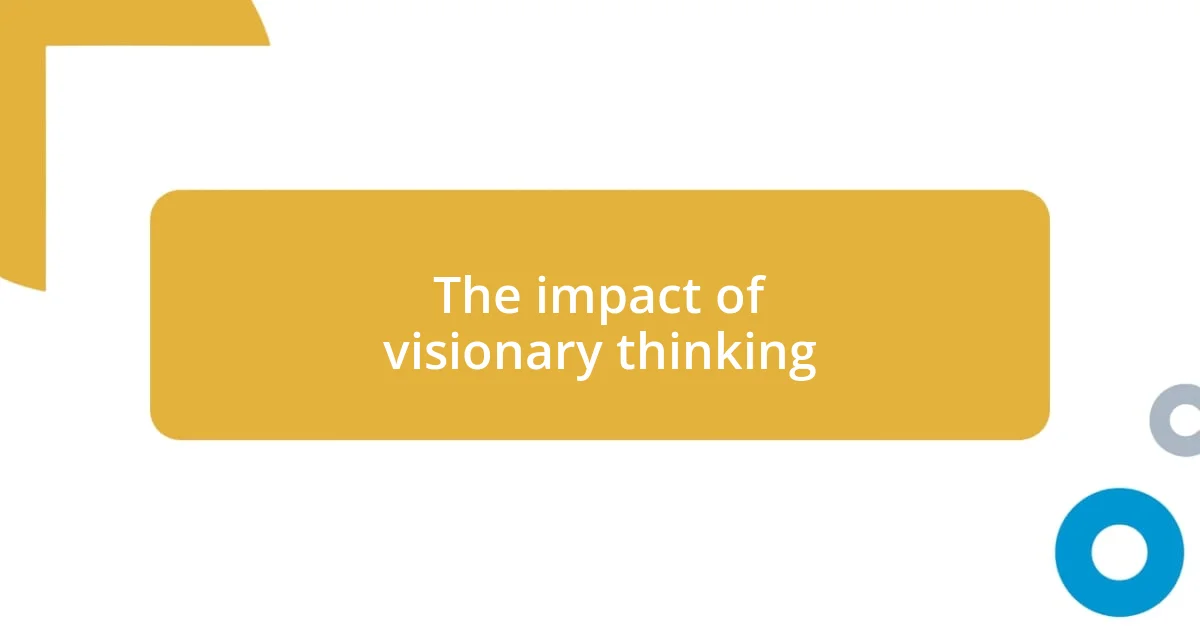
The impact of visionary thinking
Visionary thinking, much like what Joan of Arc embodied, invites us to tap into a deeper sense of purpose. I vividly recall a time when I felt restless in my career, yearning for something greater. Embracing that visionary mindset, I began to explore opportunities beyond my comfort zone. It was a leap, but just as Joan envisioned a united France, I learned that having clarity about our goals can empower us to navigate uncertainty and inspire those around us.
Furthermore, there’s a raw, transformative power in genuinely believing in a cause. I once joined a volunteer project focused on environmental sustainability. Initially, I felt like a small fish in a massive ocean of challenges. But, taking a cue from Joan’s fearless commitment, I realized my enthusiasm could engage others. I started sharing my vision for a greener community, sparking discussions that fueled collective action. This experience taught me that visionary thinking isn’t just personal; it can rally others to support a common goal.
The emotional weight of visionary thinking can sometimes be daunting. Do you ever feel overwhelmed when you envision ambitious goals? I certainly do. There have been moments when I’ve had to remind myself that it’s okay to feel vulnerable as I chase these dreams. Just as Joan faced profound fears yet forged ahead for her beliefs, I discovered that embracing those emotions was part of the journey. It’s a reminder that visionary thinking requires us to be brave, both in our aspirations and our feelings along the way.










